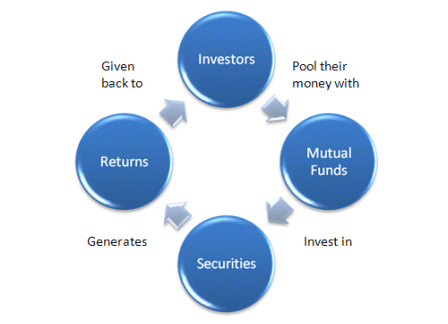Mutual Funds Mutual Fund Advantages_1
Post on: 24 Июль, 2015 No Comment

Mutual funds are not an American invention. The first was started in the Netherlands in 1822, and the second in Scotland in the 1880’s.
Originally called investment trusts, the first American one was the New York Stock Trust, established in 1889. Most that followed were begun in Boston in the early 1920’s, including the State Street Fund, Massachusetts Investor’s Trust (now called MFS), Fidelity, Scudder, Pioneer, and the Putnam Fund.
In the 1960’s there was a phenomenal rise in aggressive growth funds (with very high risk). Sometimes called go-go funds, they received the majority of the billions of dollars flowing into mutual funds at that time. In 1968 and 1969, over 100 of these new aggressive growth funds were established, bragging about how heavily invested they were in the new technology stocks.
Unemployment grew, inflation went crazy, and investors pulled billions back out of the funds. They should have hung in there! Even the author of this book made the mistake of cashing in his mutual fund shares. The fund he jumped ship on has risen 9,000% since then.
At the end of the 1920’s there were only 10 mutual funds. At the end of the 1960’s there were 244, and 413 in 1980. Today there are more than 6,500 unique funds and even thousands more that differ only by their share class (how they are sold, and how their expenses are charged).
The 1970’s saw a new kind of fund innovation: funds with no sales commission called no load funds. The largest and most successful no-load family of funds is the Vanguard Funds.
Before we continue with all you need to know about mutual funds, here is something that merits your attention. Since 1940, no mutual fund has gone bankrupt. You sure can’t say that about banks or savings and loans!
You may be wondering that with thousands of mutual funds and many, many types, how does one intelligently select the best one? Well, we’re going to explore the various kinds and some of their good points and bad points.
Keep in mind that before you invest, you need to know what a fund buys, what the manager’s philosophy is, and what gives you confidence that this is a good fund to own. If you can’t answer these questions in just a couple of sentences and in a way that your grandmother can understand, then maybe the fund isn’t for you.
Choosing a fund isn’t complicated unless you want to make it so. I am going to show you your options, but if you want a no-brainer that will definitely work, just put every extra dime into the Vanguard S&P 500 Index Fund. Keep throwing your money at it month after month and you will outperform at least 80% of the professional money managers. The reason that we don’t end the chapter right here with this advice is that by educating yourself with additional information, you can do even better.














